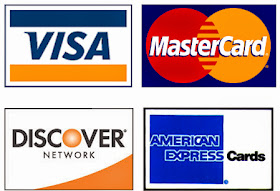I'm a pretty big expert in online marketing and search marketing. I have ten years of practical experience and frequently attend sessions held by leading national experts. I consult with some of them. Yet, there are some big questions about Youtube that nobody seems able to guide me on.
Youtube. Youtube is a huge search engine but I can't seem to find any info, even by original research, on how it works. My specific questions are in two categories. How does Youtube decide what video to suggest? And how does Youtube affect Google's main search engine rankings?
How does Youtube decide what video to suggest?
1. Which videos does it show in response to a search query? How much is it like Facebook and does it tilt towards recently trending? How much does it operate like the traditional Google search engine and have a ranking that it mostly maintains?
2. How does it categorize the content in videos? Does it rely on the keywords that we type in? The descriptions that the author puts in the "about"? Or does it search it's own transcript of the audio content (as redacted by its own speech recognition software)? Does it look at other videos in the same playlists or by the same author?
3. How does Google decide which videos to suggest at the end of a video? Does it look at other videos that might be in the same playlist?
4. What role does the number of started views and the number of completed views and the ratio of completed to started views play in these questions?
5. Do links to a video increase the authority of a video's in its Youtube ranking? How about the number of times it is embedded?
Youtube as Content - What influence on the Google main search engine results?
6. What about the impact of outgoing links from Youtube? In the description section for a video on Youtube, there is a chance to link to another video or another site. Does Google count these links in ranking sites?
7. If Google does count these links in the ranking, how does it grant authority to these links? Does it have to do with the number of views of the video? Since the older the video, the more views, would it make sense for Google to weigh these links by views per month?
Blorum.info: A blog+forum for discussions, often with myself, about how the digital media industry functions. Since you've wandered in, feel free to share some thoughts as comments on the blog. You might find a few insights. Please share a few too.
Saturday, August 16, 2014
Sunday, August 10, 2014
Facebook's Advertising Strategy
I can discern over the last three years, three phases of their messaging to potential advertising clients.
2012-13. Big focus on taking out display ads next to different targets. The emphasis was on competing with Google by having good cost per conversion.
2013-14. Big focus on improving your company's Facebook page and getting more followers. We were encouraged to advertise our page to get more followers. Now, businesses have lots of followers but only 4% of them see the posts.
2014-forward. The focus now seems to be on brand building on a mass market scale. Much like TV, the emphasis in their marketing now seems to be on creating broad brand awareness in the market about the brand and its positioning which is an investment in longer term market development, not a short-term sales generation tool.
I wonder what's next....
2012-13. Big focus on taking out display ads next to different targets. The emphasis was on competing with Google by having good cost per conversion.
2013-14. Big focus on improving your company's Facebook page and getting more followers. We were encouraged to advertise our page to get more followers. Now, businesses have lots of followers but only 4% of them see the posts.
2014-forward. The focus now seems to be on brand building on a mass market scale. Much like TV, the emphasis in their marketing now seems to be on creating broad brand awareness in the market about the brand and its positioning which is an investment in longer term market development, not a short-term sales generation tool.
I wonder what's next....
Friday, August 08, 2014
Website Owners and Credit Cards
 |
| Care About Getting Paid? |
Keep the credit card payment system simple at the start. You can avoid the whole area by just signing up with a vendor who deals with all of the payment processing for you. For instance, use Etsy and they include the credit card processing. Or just accept PayPal. These are easy and appropriate ways to start. But, lets assume that your business is now thriving and going up to and through $100,000 a year. Now, you are beginning to have the motivation to look at your business and you'll probably find that it's not yet worth the hassle of changing. But, if you can get to a $100K, you can probably get to $200K, then $400K and now it is time to think about your payment processing.
What's wrong with Etsy or Paypal or any of the other real simple solutions?
- Cost. Paypal can take 3% or 4% or 5% of your revenue. That's a lot. And their reports are really difficult.
- Credit card recovery. This is a really important question if you are built on a monthly recurring billing model. Basically, if you have a gym membership and have paid attention to your credit card, you might have noticed that even when you lose your credit card and get it replaced, the damn gym continues to bill you. How do they do that? Go over to http://www.creditcardsonline101.com to learn about it.